- Blog
- 9 High-Converting Social Proof Popup Examples You Can Copy (With 5 Use Cases)
9 High-Converting Social Proof Popup Examples You Can Copy (With 5 Use Cases)
-
Nikolett Lorincz
- Conversion
- 6 min read
Table of Contents
Social proof is an essential but often underappreciated part of the ecommerce shopping experience. All online stores need to convince visitors to buy a product that they haven’t seen or touched before, which can often be a challenge!
Social proof popups are powerful tools that can build trust and credibility with your website visitors.
When first-time site visitors witness a personal, meaningful conversation between another real customer and a brand, they’ll be much more likely to overcome any worries they might have about the quality of the products you sell.
In this article, we’ll showcase nine social proof popup examples and five use cases that help boost conversions and increase sales.
Let’s get started!
What is a social proof popup?
A social proof popup is a website overlay designed to build trust and credibility by showcasing real-time customer interactions and feedback.
These popups can display various forms of social proof, such as customer reviews, recent purchases, live visitor counts, or social media testimonials.
By providing evidence of other users’ positive experiences, social proof popups leverage the psychological principle of social validation, encouraging new visitors to engage with your brand or make a purchase.
This strategy is highly effective in reducing uncertainty and increasing conversion rates.
5 use cases of social proof pop-ups (with 9 real-life examples)
Now that you understand what social proof popups are, let’s dive into some practical applications.
Here are five key use cases illustrated with nine real-life social proof popup examples, showcasing the versatility and impact of social proof popups in various marketing strategies.
1. Include customer testimonials
Testimonials are a powerful form of social proof, and they reassure potential customers that others have had a positive experience with your brand. You can create social proof like this by asking for customer feedback, using posts from your social media platforms, or checking out your Google reviews.
When you display genuine customer testimonials in your popups as part of the customer experience, it helps you convert visitors because all of them want to feel the same positive emotions that are shared in the social proof.
For a high popup conversion rate, add a testimonial to your email popup like in the example below.
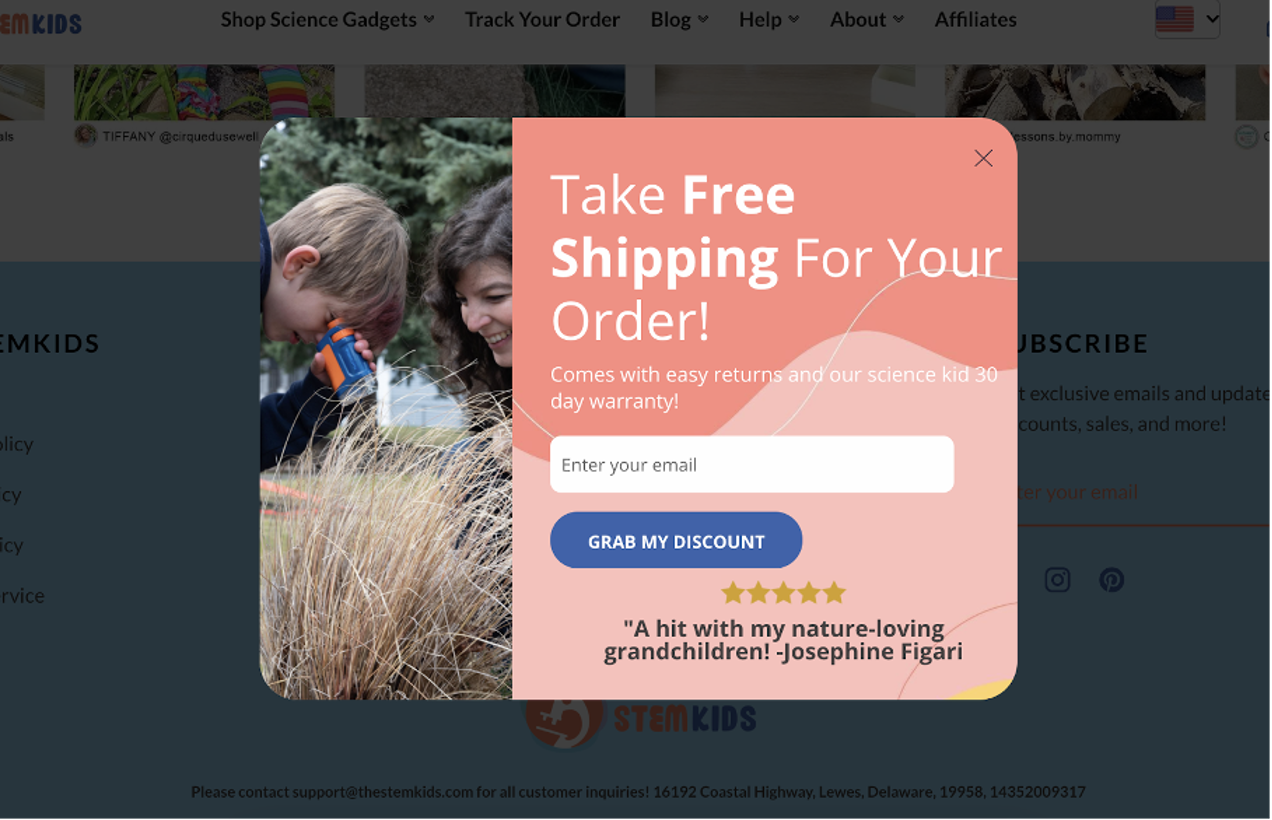
Video testimonials can also help to convince people to buy your products and they also add credibility. The visual and emotional elements conveyed through video testimonials create a more relatable and engaging narrative, fostering a sense of trust among the audience. With OptiMonk, you can easily place a video element on your social proof popup.
2. Use numbers as social proof
Another way to increase customer trust using a social proof popup is by quantifying your online store’s success with numbers.
This type of data-driven proof adds credibility and reinforces the value of your offerings, making it more likely that visitors will trust and engage with your brand.
For example, you can let a message like “Over 10,000 satisfied customers,” promote your brand’s popularity.
Here’s how Numerade uses quantifiable social proof to convert visitors into customers:

Here’s another example from Userpilot, whose social proof element encourages more customers to join their email list:
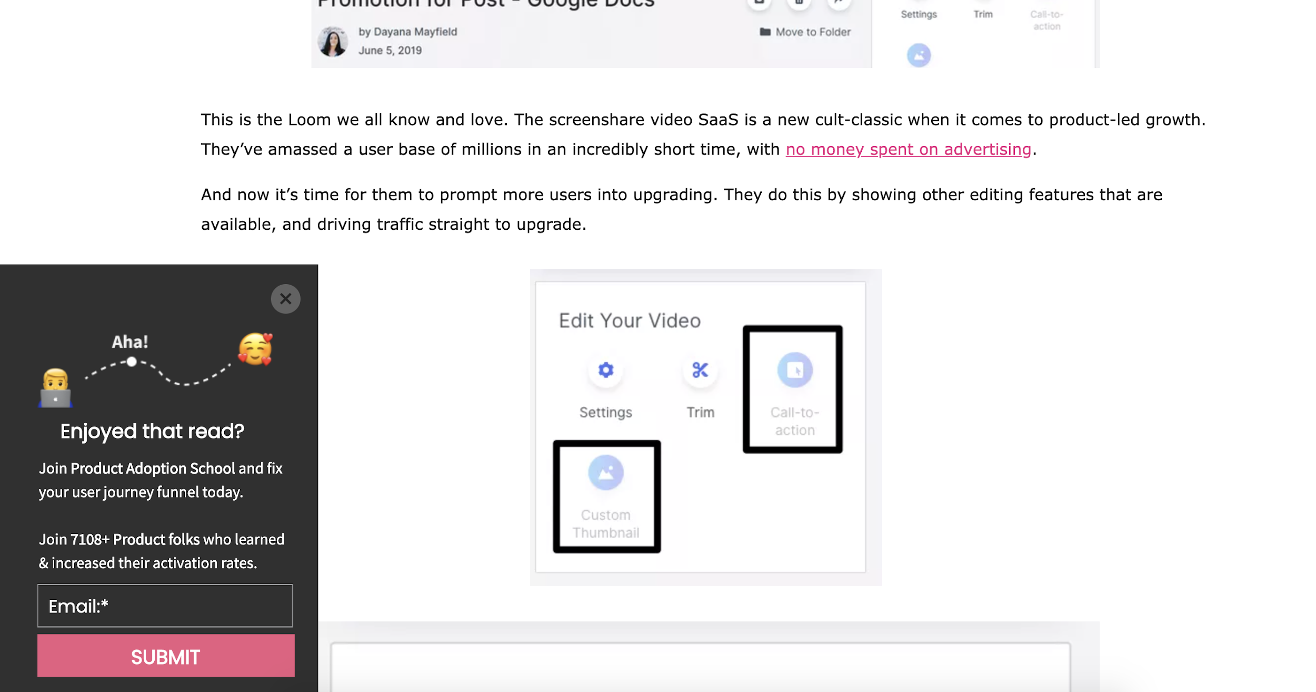
3. Highlight logos your website visitors are familiar with
You can also feature recognizable logos of well-known clients or partners you’ve worked with to boost conversions.
Associating your brand with reputable companies boosts your credibility and shows that your products or services are trusted and respected.
This is one of the most commonly used types of social proof in the SaaS space, as companies want to assure potential customers that their product works well enough to be used by famous brands.
When ClickUp shows logos like Nike, Netflix, and Google on its social proof popup, the natural thought that potential customers will have is “Well, it sure seems like they know what they’re doing!”
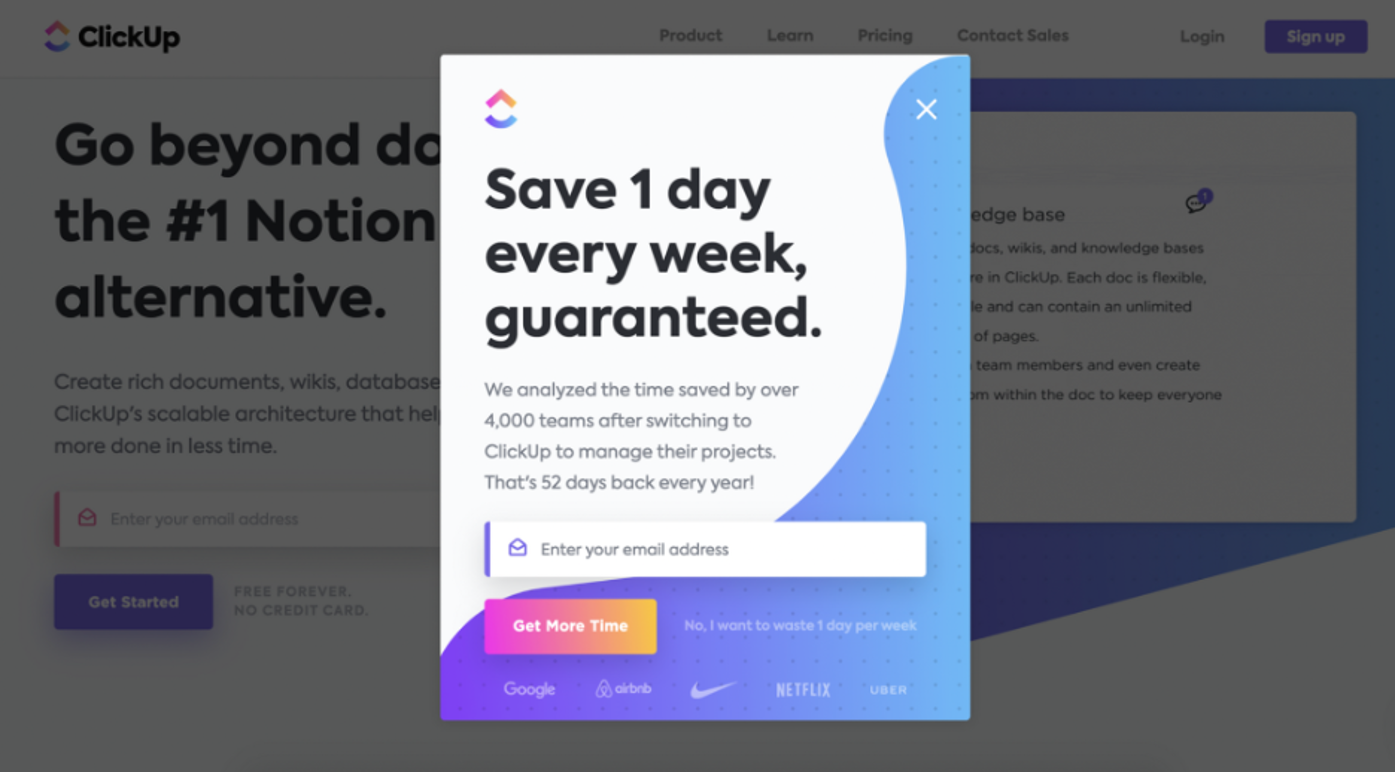
4. Show product ratings
Online stores often create social proof popups that display the average rating or star-based feedback from customers. This provides a visual credibility boost that visitors understand in a split second—they don’t have to stop and read anything.
This type of element is very easy to add to your site because all social proof software tools will have this feature.
Here are two social proof popup examples that use product ratings to increase conversion rates:
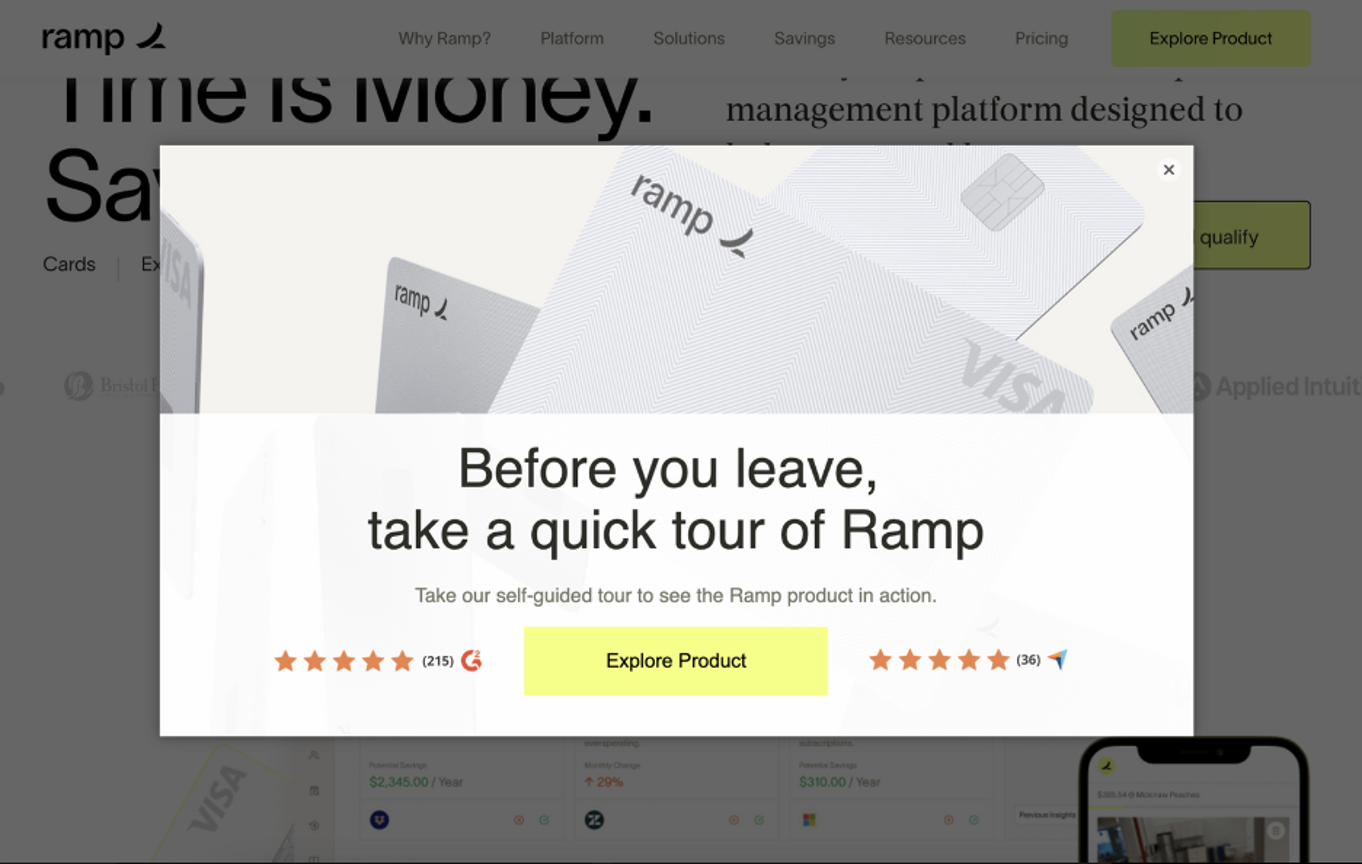
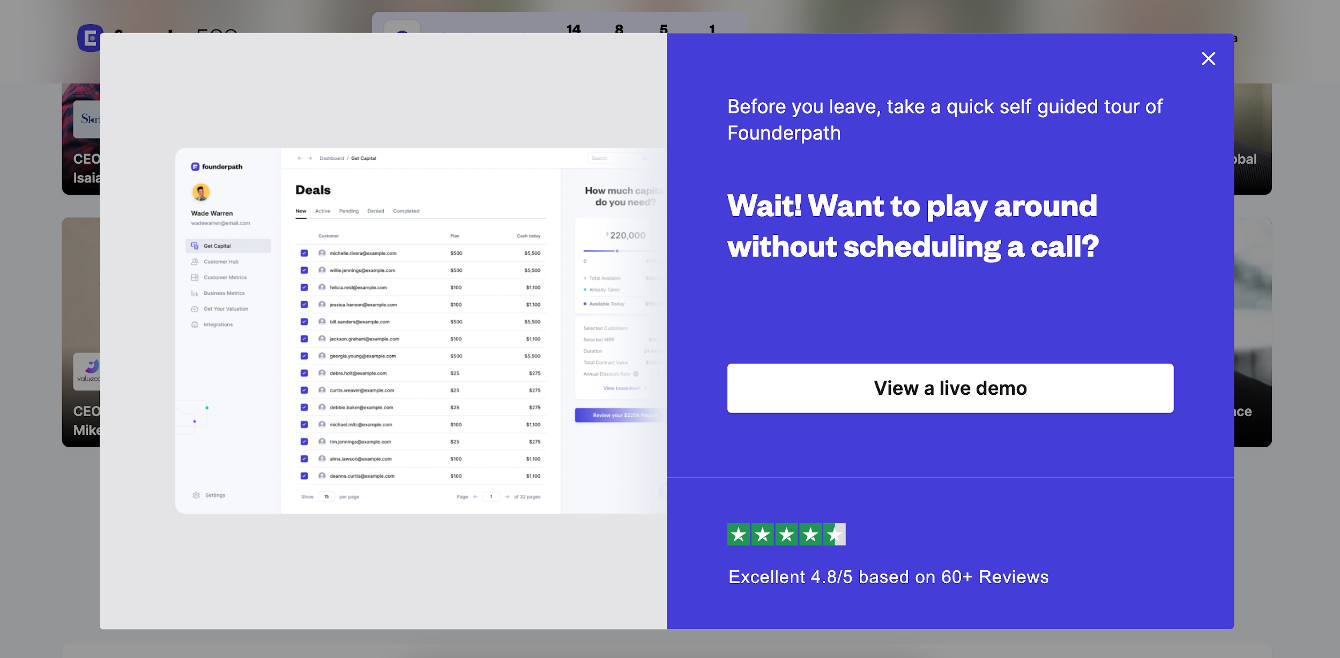
5. Promote bestsellers
Displaying your most popular or best selling products is also one of the commonly used types of social proof.
That’s because when visitors see that certain items are bestsellers, they’re going to get the impression that those products have been tested and favored by others. This makes your most popular products feel like safe choices.
This can also work as a kind of FOMO-infused social proof, since visitors won’t want to miss out on any products they have their eye on because they’re selling so quickly. Recent sales popups work based on this same psychological phenomenon.
Check out how Bukvybag promotes bestsellers on an exit-intent popup:
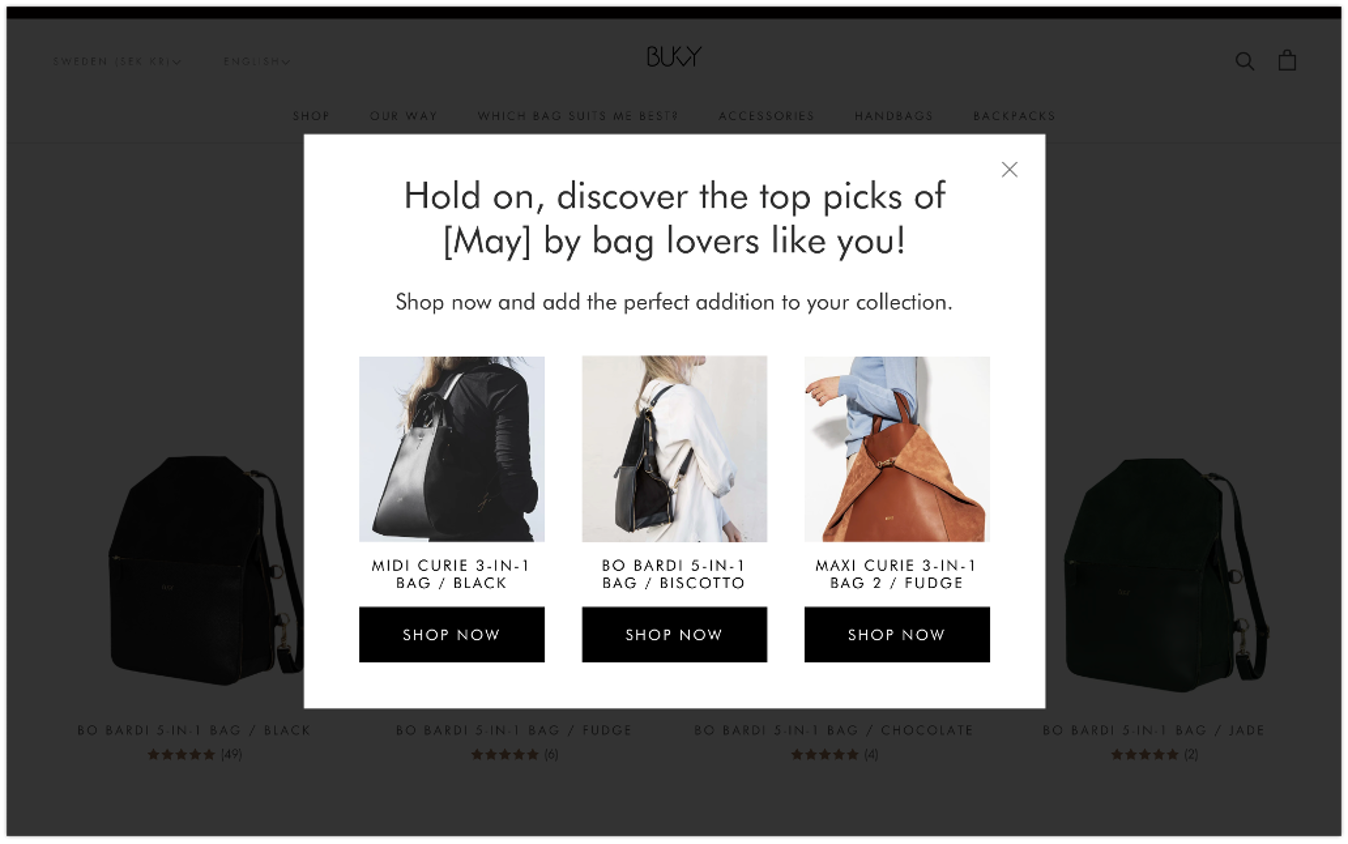
Here’s another example from Indestructible Shoes that can help to increase sales:
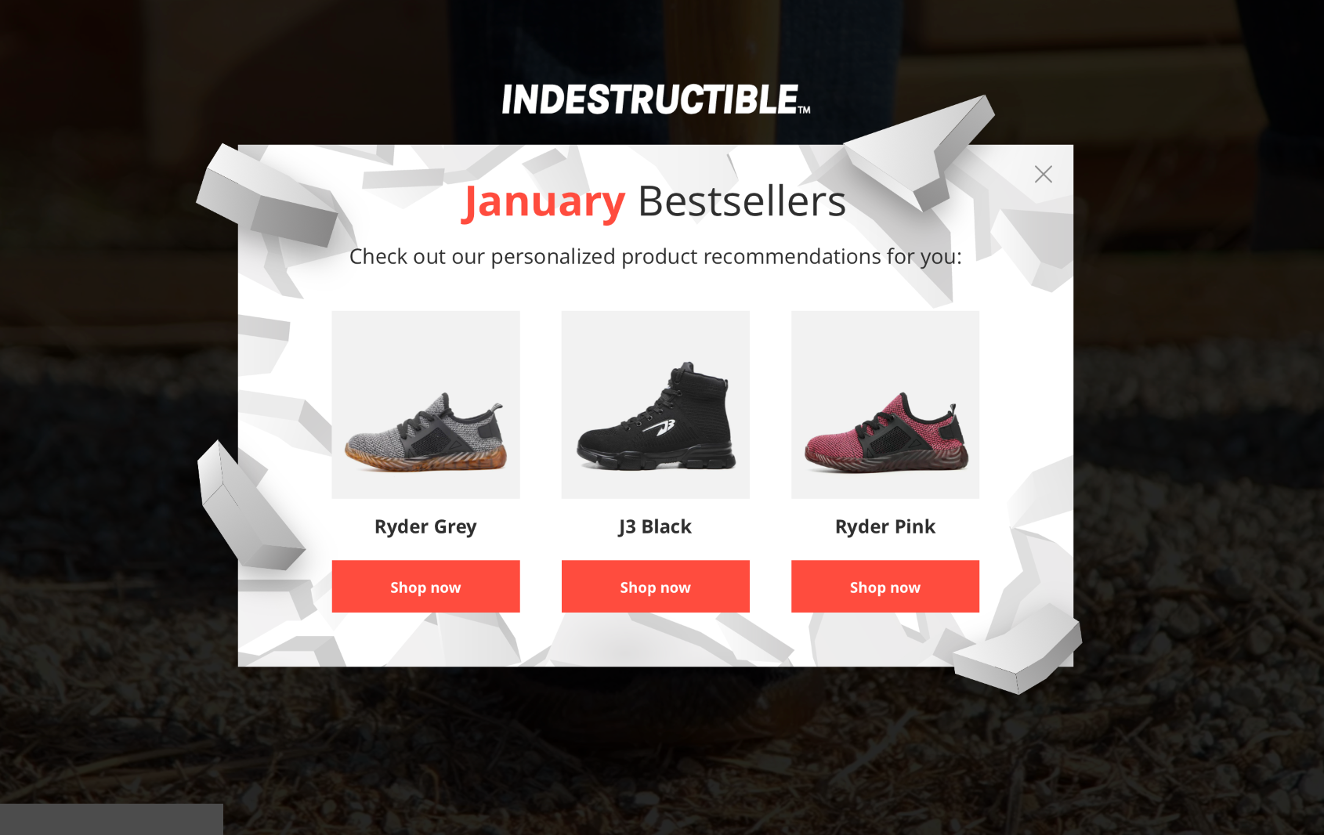
Or, you can get inspired by this example from Lammle’s that resulted in a 17.3% increase in sales:
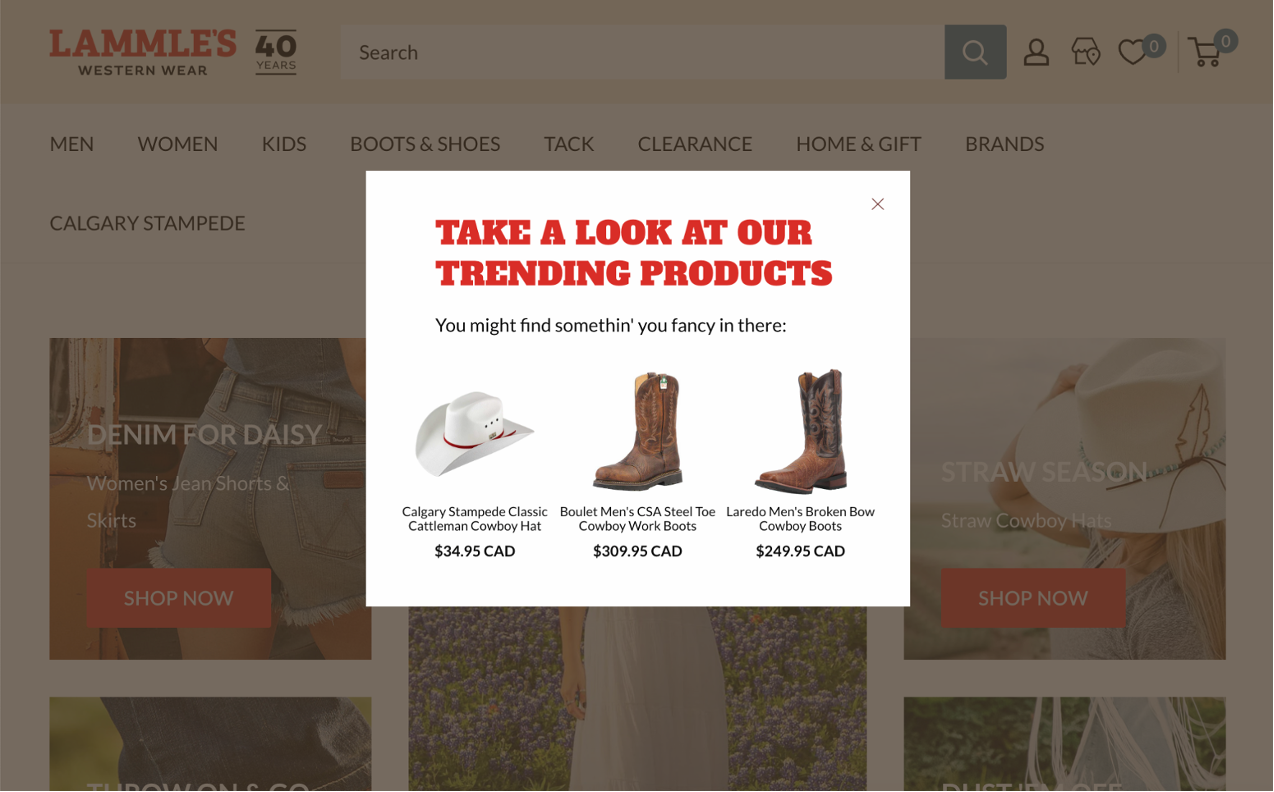
How to create a social proof popup?
Using OptiMonk, you can quickly create an effective social proof popup.
Here’s a detailed guide to help you get started with your social proof strategy:
Step 1: Choose the type of social proof
First, decide on the type of social proof you want to showcase.
Do you want to highlight positive feedback from satisfied customers? Or display star ratings or review snippets from your customers? Maybe you want to showcase your best-sellers? The choice is yours.
Step 2: Design the popup
Next, design your popup to be visually appealing and engaging. OptiMonk provides customizable social proof popup templates that you can tailor to fit your brand’s look and feel while leveraging social proof.
Get started with one of these ready-to-use pop-up templates:
Here are some tips for designing an effective popup:
- Keep it simple: Use a clean and straightforward design to avoid overwhelming your visitors.
- Compelling call-to-action: Include a strong CTA that encourages users to take the desired action, whether it’s making a purchase, signing up, or following your social media.
- Visual elements: Add images, logos, and graphics to make your popup more attractive and credible.
Step 3: Set targeting rules
Customize when and where your popup appears by setting targeting rules in OptiMonk. This ensures your popup reaches the right audience at the right time.
Consider the following targeting options:
- Behavioral targeting: Show popups based on user behavior, such as time spent on a page, exit intent, or scroll depth.
- Geographical targeting: Display popups to users from specific locations.
- Referral source targeting: Tailor popups based on how visitors found your site, such as through social media, search engines, or direct links.
Step 4: Launch your popup and optimize
Finally, activate your popup.
Once your popup is live, you need to continuously optimize it to improve their effectiveness. OptiMonk allows you to perform A/B tests on different designs, messages, and even targeting rules.
FAQ
What is a social proof popup?
A social proof popup is a type of overlay or notification that appears on a website to showcase positive feedback, testimonials, or other forms of social proof.
Do social proof popups work?
Yes, social proof popups are proven to be effective for influencing user behavior and driving conversions. The concept of social proof is deeply ingrained in human psychology, and people often look to others’ actions and opinions to guide their own decisions, especially in unfamiliar or uncertain situations. Social proof popups leverage this psychological tendency to build trust and credibility, which can positively impact a website’s performance.
Why is social proof so effective?
Displaying customer testimonials, product ratings, and positive reviews create a sense of trust and authenticity around a brand and its products or services. Visitors are more likely to believe the claims when they see real feedback from others. For first-time visitors, social proof can alleviate doubts and hesitations, especially when they’re unfamiliar with the brand or offering.
What is social proof marketing?
Social proof marketing is a strategy that leverages the psychological concept of social proof to influence consumer behavior and build trust in a brand, product, or service. It aims to showcase positive feedback, user experiences, endorsements, and statistics to demonstrate that others have had positive interactions with the brand or offering.
Wrapping up
Whether you run a SaaS company or a D2C ecommerce store, you can use social proof to mimic personal recommendations, create urgency, and lower customer acquisition costs. And that adds up to both a more positive brand image and a more profitable online store.
If you’d like to use popups to take advantage of social proof psychology, sign up for a free OptiMonk account and gain access to a powerful conversion rate optimization tool and dozens of popup templates!
Migration has never been easier
We made switching a no-brainer with our free, white-glove onboarding service so you can get started in the blink of an eye.
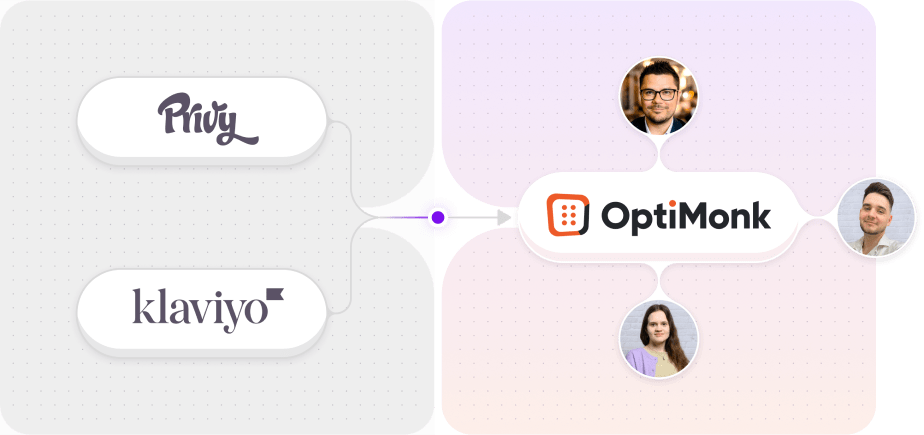
What should you do next?
Thanks for reading till the end. Here are 4 ways we can help you grow your business:
Boost conversions with proven use cases
Explore our Use Case Library, filled with actionable personalization examples and step-by-step guides to unlock your website's full potential. Check out Use Case Library
Create a free OptiMonk account
Create a free OptiMonk account and easily get started with popups and conversion rate optimization. Get OptiMonk free
Get advice from a CRO expert
Schedule a personalized discovery call with one of our experts to explore how OptiMonk can help you grow your business. Book a demo
Join our weekly newsletter
Real CRO insights & marketing tips. No fluff. Straight to your inbox. Subscribe now
Nikolett Lorincz
- Posted in
- Conversion
Partner with us
- © OptiMonk. All rights reserved!
- Terms of Use
- Privacy Policy
- Cookie Policy
Product updates: January Release 2025








